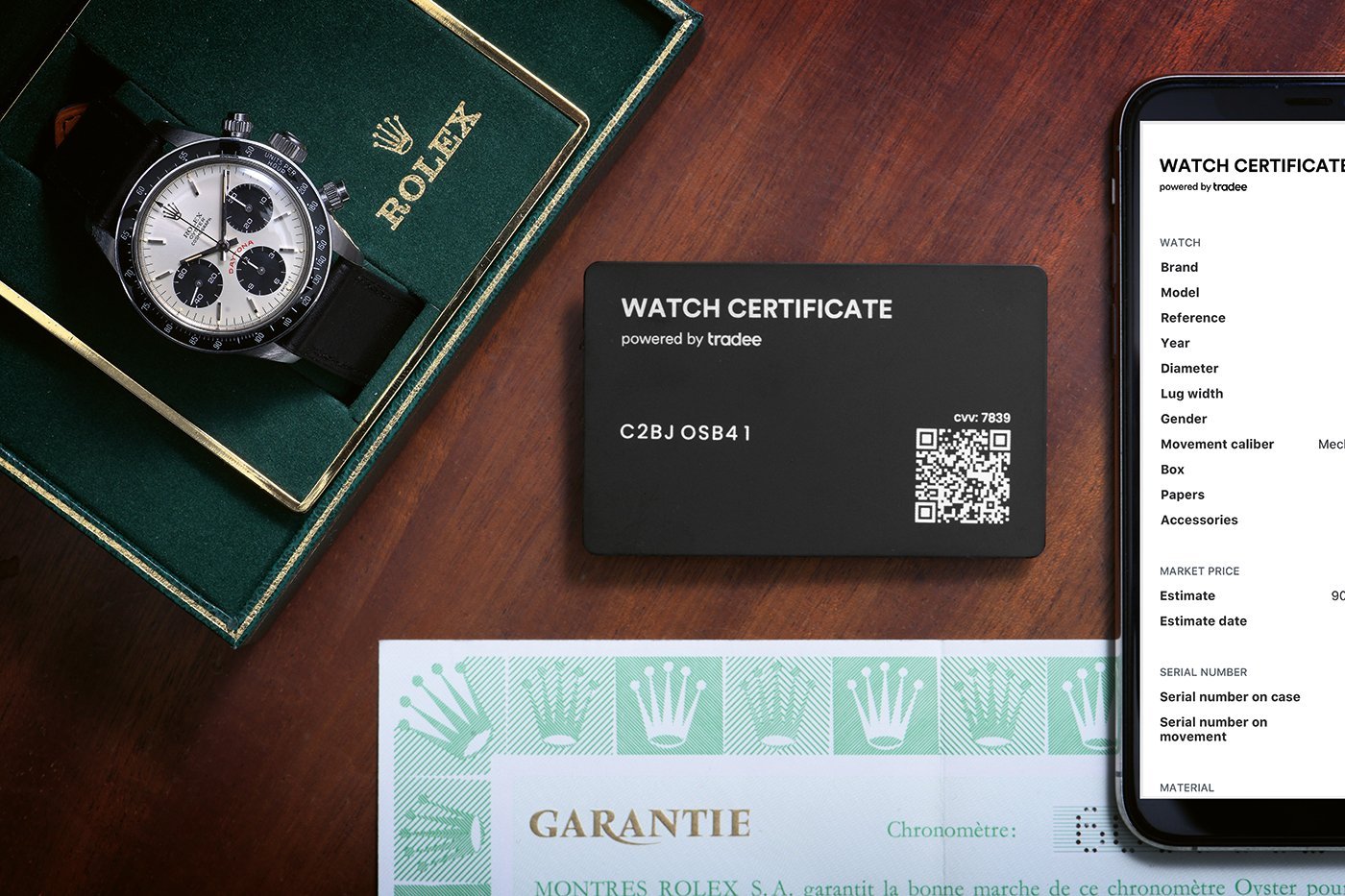riginally a marketplace, in 2019 Watch CertificateTM became a blockchain-secured watch certification service. Its first customers were, for the most part, individuals seeking authentication of their timepieces. Now the company is also working directly with brands. Independent watchmaker Rebellion is one, having decided to replace paper-based warranties with “evolutive and tamper-proof” certificates, supplied under a white label.
Another recent example is the authentication and certification, for auction house Christie’s, of a Rolex “Lemon” Daytona ref. 6263 in 18k gold, dubbed “The Legend” because of its rarity. Appraised by Rolex specialist Carmelo Armeli, it hammered at CHF 3.4 million in Geneva in November. Its digital twin is recorded in the blockchain, making it incorruptible. Why this choice? “Using the services of an independent third party guarantees complete transparency, which is what the new generation of collectors wants,” explains Rémi Guillemin, head of the watches department at Christie’s Geneva.
Communications manager Thomas Brenot is delighted by the direction the company’s business model is taking: “Because collectible watches have gained so much in value in recent years, we started out providing authentication services for private individuals, usually for insurance purposes. Now we’re extending our ecosystem to professionals. As well as brands, we’re in discussion with several actors on the pre-owned market.”

“Because collectible watches have gained so much in value in recent years, we started out providing authentication services for private individuals, usually for insurance purposes. Now we’re extending our ecosystem to professionals.”
Serving a real-life need
Authentications are provided by a panel of experts and invoiced by Watch CertificateTM, with four packages ranging from under CHF 200 to over CHF 1,000 for private customers. “We use the Ethereum blockchain protocol to create tamper-proof certificates and recently added an ownership layer through Polygon NFTs,” says Thomas Brenot. This evolutive digital twin records the watch’s history in the blockchain, thereby enhancing its integrity, lifespan and value. It forms “transferable proof of ownership that is recognised by insurers and the authorities.”
The company sees itself as complementing the Web3 solutions that are already available to luxury brands. “They provide a technology solution to issue NFTs which are only useful if the watch’s owner makes use of them and if the brand updates them. Which is where Watch CertificateTM comes in. We can link an existing token to one of our certificates, which becomes the medium for that token. We’re completely open to collaborations with other players in the market.”
The company’s development makes an interesting case study. It used its knowledge as an intermediary in the watch market to then refocus its business model on certification. The experience it gained with private collectors, insurers and experts, and more recently with brands and pre-owned marketplaces, stands it in good stead in a nascent segment founded to a large extent on the promise of future development.






















































